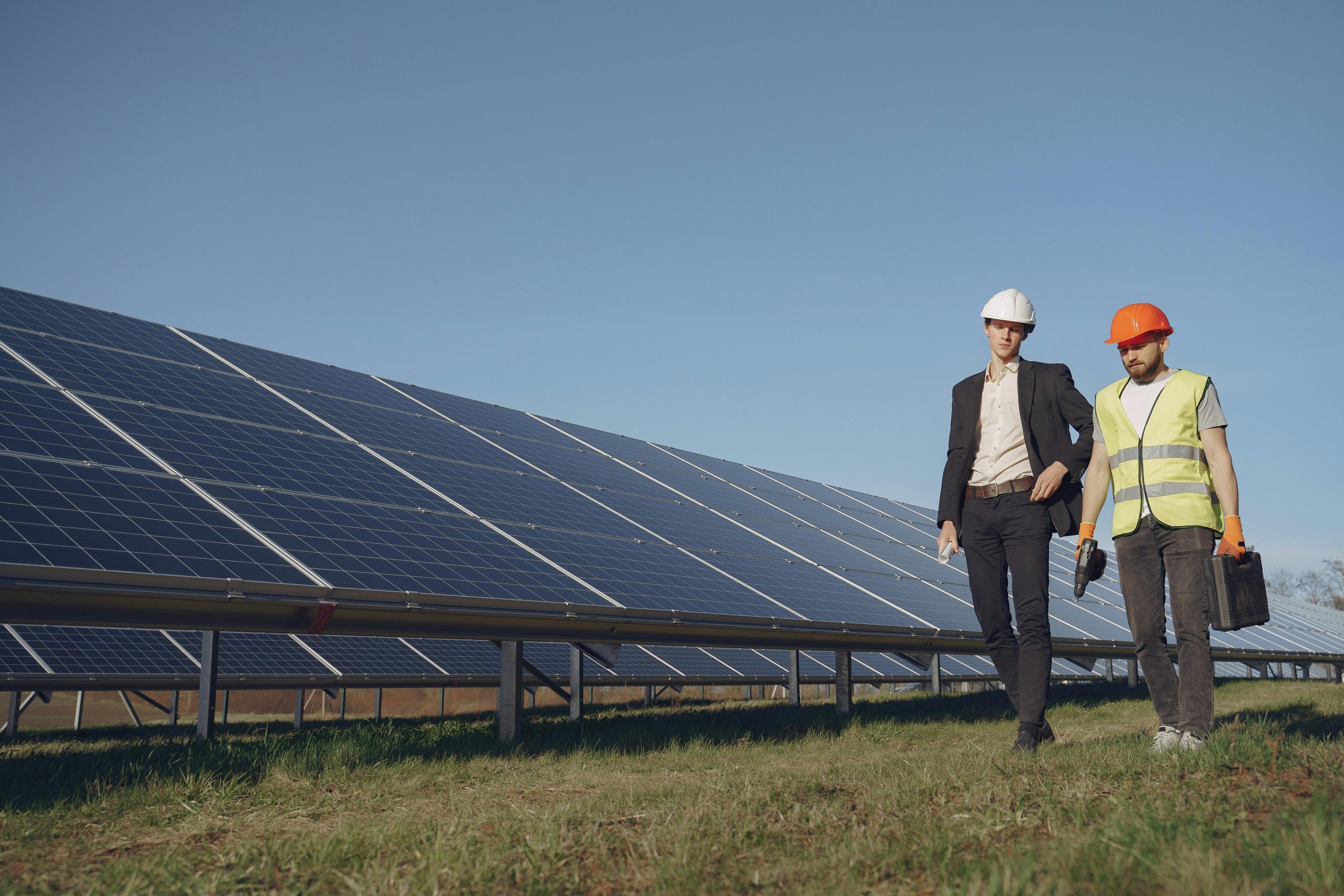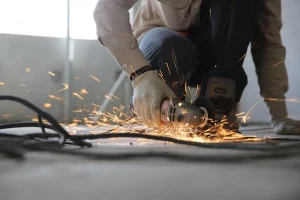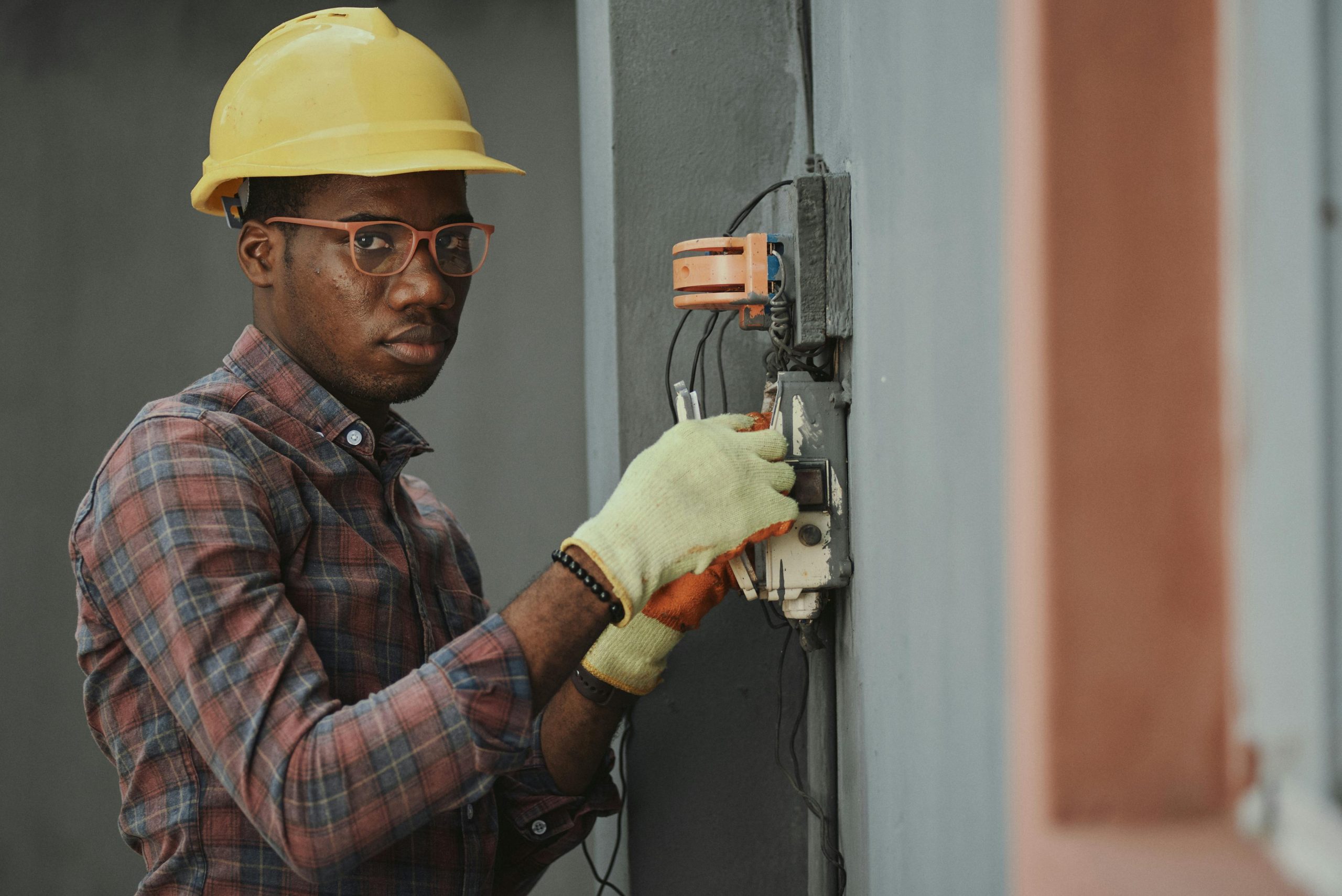Sustainability in Construction and What It Means for Recruitment

The UK construction industry is changing. As climate concerns grow and government regulations tighten, building practices that once seemed optional are quickly becoming standard. The demand for sustainability skills has risen dramatically, creating both challenges and opportunities for everyone in the sector.
How Sustainability is Reshaping Construction Jobs
Traditional construction roles are evolving to include sustainability components. Electricians now need to understand renewable energy systems and smart home technology. Plumbers are installing water-saving fixtures, heat pumps, and more efficient boilers. Site managers are overseeing waste reduction programs, recycling plans, carbon footprint tracking, and ensuring compliance with new environmental regulations.
For employers, this means the skills gap is widening. Finding workers who combine traditional construction expertise with sustainability knowledge can prove difficult.
Energy Efficiency Specialists
The drive toward net-zero has created high demand for workers who understand how to improve energy performance. This includes but is not limited to:
- Heat pump installers
- Solar PV technicians
- Energy assessors
- Insulation specialists
- Smart system integrators
Many of these roles didn’t exist in mainstream construction even ten years ago. Now they’re among the fastest-growing positions in the sector.

Sustainable Materials Experts
As the industry moves away from carbon-intensive materials like traditional concrete, people who understand alternatives are increasingly valuable. Knowledge of timber construction, low-carbon concrete, recycled materials, and natural insulation products is now a significant advantage in the job market.
Green Building Certification Professionals
Knowledge of certification systems like BREEAM, LEED, and Passivhaus is becoming essential for many projects. Employers are seeking people who understand these frameworks and can help navigate the documentation and technical requirements.
This isn’t limited to sustainability consultants; project managers, architects, and even site supervisors need to have working knowledge of these standards.
What This Means for Job Seekers
If you’re looking for construction work, sustainability knowledge can significantly improve your prospects. Here’s what we’re seeing make a difference for candidates:
- Relevant certifications – Qualifications in areas like renewable energy installation, energy assessment, or specific green building standards make candidates stand out.
- Practical experience – Having worked on projects with sustainability goals, even in a traditional role, is valuable experience worth highlighting.
- Understanding of regulations – Knowledge of current and upcoming building regulations related to energy efficiency and carbon reduction is increasingly important.
You don’t necessarily need to become a sustainability specialist to benefit from this trend. Adding green skills to your existing trade can make you more employable and increase your earning potential.
What This Means for Employers
For construction companies, the sustainability shift creates recruitment challenges but also opportunities to strengthen your business:
- Skills audits – Understanding your current team’s sustainability knowledge helps identify gaps before they become problems.
- Training investment – Upskilling existing staff in sustainability areas is often more efficient than competing for scarce talent.
- Apprenticeship focus – Bringing in apprentices and training them with sustainability in mind creates a pipeline of workers with the right skill mix.
Construction firms that embrace sustainability not only win more work but also attract and retain better talent.
The Future of Sustainable Construction Recruitment
The trend toward greener building isn’t slowing down. If anything, it’s accelerating as climate targets approach and public awareness grows. For the construction industry, this means:
- Traditional and sustainability skills will continue to merge
- Multidisciplinary workers will be increasingly valuable
- Continuous learning will become essential for career longevity
- Digital skills will complement sustainability knowledge as tools for modelling and measuring environmental performance improve
From our perspective at PPR, sustainability knowledge is becoming less of a speciality and more of a baseline expectation across the construction industry.

How PPR Can Help
Whether you’re an employer struggling to find workers with sustainability knowledge or a job seeker looking to develop your green construction skills, we can help bridge the gap.
For employers, we can:
- Source candidates with specific sustainability certifications and experience
- Advise on realistic skill expectations in the current market
For job seekers, we can:
- Guide you toward the most valuable sustainability certifications for your trade
- Connect you with employers valuing your green building knowledge
- Help you effectively highlight your sustainability experience
The construction industry’s move toward sustainability creates challenges, but also tremendous opportunities for those who adapt. By understanding how these changes affect recruitment, both employers and workers can position themselves for success.
To discuss your sustainable construction recruitment needs, contact PPR at 01895 808188 or upload your CV through our website.
Frequently Asked Questions
Which sustainability certifications are most valued by construction employers?
For general construction roles, knowledge of BREEAM, LEED or Passivhaus standards is widely valued.
Do I need to be a sustainability specialist to benefit from green building skills?
No, most construction employers are looking for traditional skills combined with sustainability knowledge, rather than pure specialists. Adding green building understanding to your existing trade or profession often provides the best employment opportunities.
How quickly are sustainability requirements changing in construction?
The UK’s commitment to net-zero carbon emissions by 2050 is driving significant regulatory changes. Building regulations are tightening, with the Future Homes Standard coming in 2025 requiring new builds to have high energy efficiency and low-carbon heating.
More From Us
Expert Tips to Improve your CV
5 strategies for building a successful career in construction






